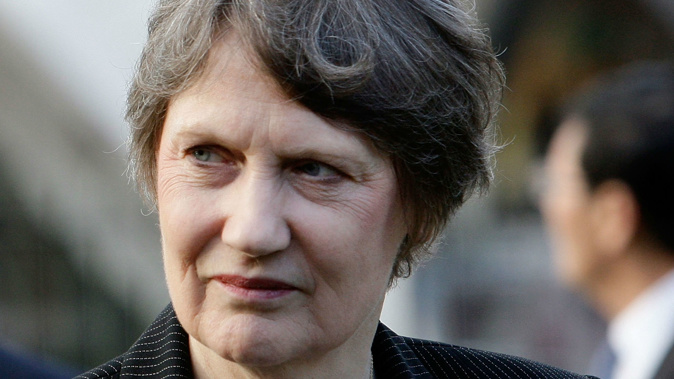
Helen Clark is poised to announce that she's in the race for the top job at the UN.
It's believed John Key will announce her nomination this morning. And then half an hour later in New York, Clark will hold a conference too, announcing her candidacy for the Secretary General role.
There's been a lot of speculation about whether Clark would seek Ban Ki-Moon's role when he steps down this year. If she succeeds, she'll be the first person from Oceania to lead the UN.
In the past, it’s been headed up by a Norwegian, they’ve had a Swede, a Burmese (now Myanmar), an Austrian, a Peruvian, an Egyptian, a Ghanaian,and a South Korean.
And never before has a woman lead the UN.
Can she do it? Of course she can. Clark is in her second term as head of the UN Development Programme. She is much admired in that role and as it stands now, she is the most powerful woman in the UN. She's number three.
Her toughest opponent is likely to be Irina Bokova from Bulgaria - UNESCO’s director-general. Like Clark, she's very well thought of at the UN. The Russians like her. They've already said she's their woman.
She's not without controversy though. She was a member of Bulgaria's Communist Party during the Cold War, and under her leadership, UNESCO recognised Palestinians and granted them full membership rights. Bokova earned the wrath of the US and Israel for that.
Clark would be a less controversial choice. The issue is, as is so often the case at the UN, it's not necessarily about who's the best person for the job, but whose turn it is, and on that basis it's the turn of Eastern Europe.
Where Clark does reign supreme is in her support of women, and that seems to be increasingly important to the UN general assembly this year. Clark's credentials are untouchable. By the end of her nine years as Prime Minister in 2008, our governor general, the cabinet secretary, our attorney general and the speaker were all women.
If she headed up the UN, it's likely it would become a far more diverse organisation.
The process of debating and voting will go on for some time, but what is almost certain is that the world's top diplomatic post will be filled by a woman. And it will be interesting to see how the world may change under her leadership. The refugee situation, third world health, poverty, inequality and some of the world's unchecked and savage conflict zones.
Is this Helen Clark's time? We'll know later this morning.
Take your Radio, Podcasts and Music with you









